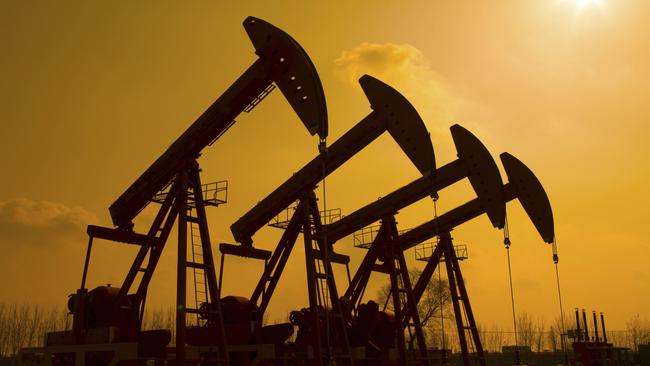OPEC unlikely to make further production cuts this month
The cartel is worried a price spike would incentivise rivals, even as it hopes to edge prices above current levels.

OPEC members face a dilemma in the run-up to a new round of oil-production talks later this month: They want to boost crude prices to raise their revenue, but they don’t want to send prices so high that North American shale-oil producers will lift their output.
The result, say officials from members of the Organization of the Petroleum Exporting Countries, is that the cartel is unlikely to make significant production cuts when it meets in Algiers beginning Sept. 26.
After meeting with OPEC secretary-general Mohammed Barkindo on Tuesday, Iran’s oil minister Bijan Zanganeh said he and others in OPEC are hoping to get the oil price between $US50 and $US60 a barrel — higher than today’s $US47 or so, but low enough to keep “rivals from raising their output,” the ministry said.
It is a big drop from the $US70 per barrel Mr Zanganeh and other OPEC officials said they were hoping for earlier this year. Now, OPEC officials say they’re concerned that if oil exceeds $US60 per barrel, US producers could crowd into the market.
The lower price target is part of OPEC’s longstanding struggle with the US shale-oil boom. In recent years, oilfrom hydraulic fracturing, or “fracking,” of shale formations has boosted North American crude production and contributed to a worldwide glut that’s driven oil prices down by more than 50 per cent since 2014.
Rather than follow its historic strategy of cutting its production to boost worldwide prices, OPEC, led by its biggest member Saudi Arabia, has kept pumping. Its aim has been to keep prices so low that North American producers will lose money and stop pumping. Iran, like Saudi Arabia, has increased production after emerging this year from western sanctions that limited its crude exports.
OPEC’s price-depressing approach seemed to be running out of steam in recent months. In June, officials from Iran and OPEC member Algeria said they wanted to see the oil price go up to $US70 per barrel or so. And after recent talks, officials from OPEC countries and non-OPEC member Russia indicated they could co-ordinate on production limits to reach that level.
But in recent days, some of those officials have indicated that they’re resigned to lower prices. After meeting with Mr Zanganeh Saturday, Algeria’s oil minister, Noureddine Bouterfa, said the cartel is aiming for prices of $US50 to $US60 a barrel, according to Iran’s oil ministry. A spokeswoman for Algeria’s oil ministry declined to comment. Algeria had previously said it was aiming for $US70 per barrel.
The dropping price targets reflect the US shale-oil industry’s unexpected resilience. Some OPEC countries had earlier expected many US shale producers to cut production when oil dropped to $US50 a barrel, a Middle Eastern OPEC delegate said. But US shale has “surprised us, and can surprise us again,” the official said.
While some shale producers cut back when prices were below $US50 earlier this year, US producers ramped up drilling as prices rebounded to $US50 a barrel this summer. The US added an average of eight rigs each week until mid-August, according to US oil services company Baker Hughes.
OPEC delegates say they’re concerned that prices over $US60 could result in a new surge of US production.
Shale producers need prices above $US60 to launch significant new production, Swiss oil consultant Olivier Jakob wrote in a note Tuesday. Within OPEC, “there is no interest to push crude oil prices” above that level, he wrote, since doing so could spark a new glut that could drive prices down all over again.
Still, there is disagreement within OPEC. Venezuela, which is suffering high inflation and food shortages during the oil slump, still wants higher prices. In remarks published on Venezuela”s oil ministry website last month, President Nicolás Maduro said the “fair, balanced oil price must be set at $US70 per barrel.”
What the cartel members do agree on is that today’s price is too low. “Below $US50 a barrel is not acceptable,” Algeria’s Mr Boutarfa said Monday after a meeting with OPEC and Qatari officials in Doha.
Dow Jones




